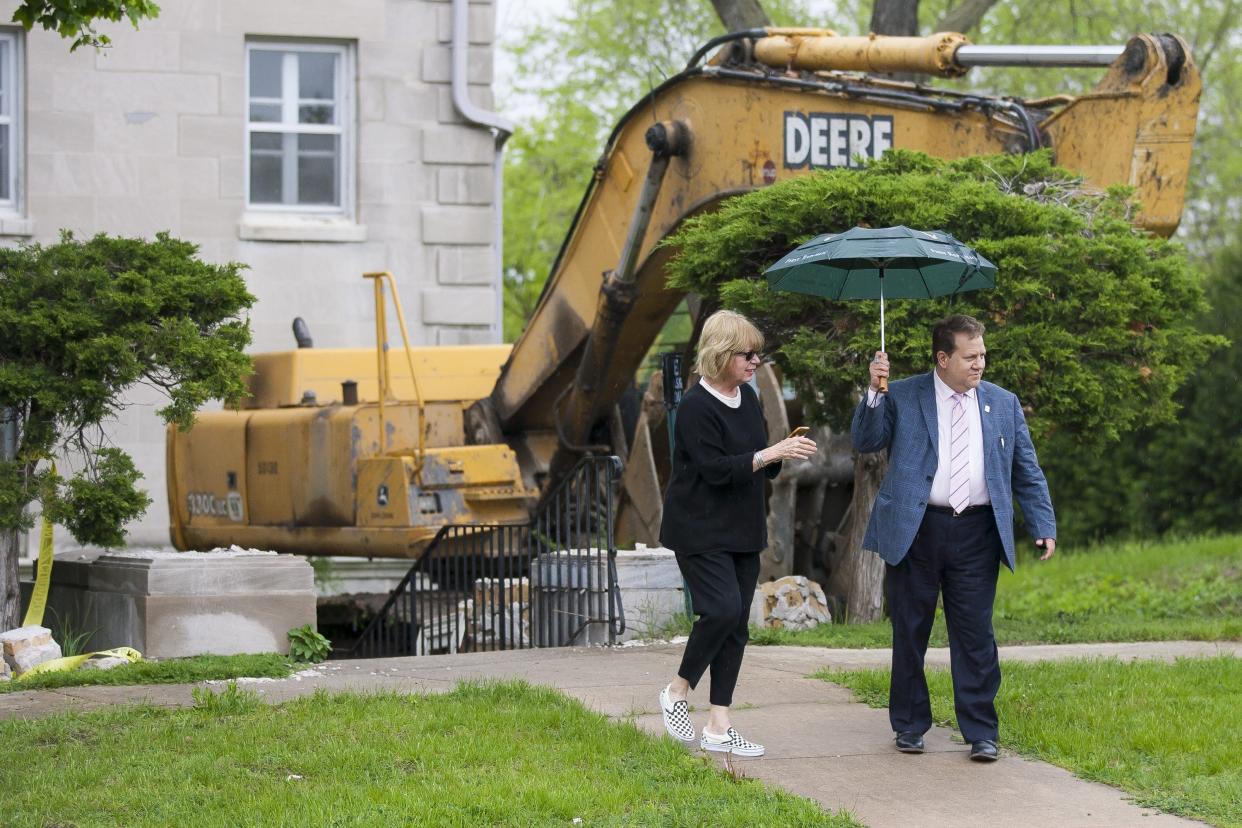Stung by loss of chancery building, Rockford could change historic preservation rules

ROCKFORD – An alderman who fought a losing battle to save the Catholic Diocese of Rockford's 90-year-old former chancery wants to make it easier to declare a property a historic landmark over the objections of a property owner.
Spearheaded by Ald. Mark Bonne, D-14, the measure would repeal a 2004 amendment to the city's historic preservation ordinance that required a supermajority of the City Council to approve landmark status if an owner objects.
Under Bonne's proposal, a simple majority would be all that is needed to confer historic landmark status to protect the historic character of a property even if the owner doesn't want it.
From 2019: Preservationists gather in 'sorrow' as crane demolishes former chancery in Rockford
"There are all kinds of property decisions City Council makes that owners don't agree with and don’t require a supermajority," Bonne said. "It happens pretty much at every meeting."
Rockford's Historic Preservation Commission recommended the change to City Council after Bonne made a Feb. 8 presentation about it. The measure could be considered by the full City Council next week.
Ald. Tim Durkee, R-1, opposed the change saying that it could amount to a government "taking" of a property owner's rights, imposing regulatory and potential financial burdens. Durkee said that if there isn't a requirement for a supermajority there should be another way for the property owner to appeal a decision.
Ald. Kevin Frost, R-4, said that the defeat of the chancery's application for landmark status was evidence that the current system — which places a higher bar on taking what he considers the extraordinary step of infringing on property rights — is working.
"What is really the intent behind changing the ordinance?" Frost asked. "I think it's just being done because maybe some people are upset about what happened the last time."
In that case, although a 7-6 majority of the City Council supported making the property a landmark over the Diocese's objection, the measure failed to garner the needed supermajority.
The structure, which needed millions in repairs, was demolished in June 2019. Supporters of landmark status felt it could have been sold to a developer and turned into residential apartments while preserving the historic character of a building that had anchored a historic Rockford neighborhood.
Pleas for the diocese to partner with residents or the city to redevelop the property were rejected.
Frost said he was also concerned about the potential of the rule being applied to a residential home. Although there has not been an attempt to make a residential property historic over the objections of a homeowner, Frost said there is nothing to prevent it.
Bonne led an effort to preserve Lincoln Middle School and have it designated a local historic landmark. He later joined other historic preservationists to fight an ultimately losing battle to save the Beaux Arts French architectural style Piety Hill chancery which had been Diocese headquarters until 2002 and where the bishop once lived.
Bonne argued a simple majority was all that was needed for landmark status under the original historic preservation ordinance approved in 1978, nearly three decades before the requirement for a supermajority was introduced.
And Bonne questions why Rockford requires a supermajority – 10 of 14 votes – to grant historic landmark status when other cities in Illinois with a historic preservation ordinance do not.
"Why do we have something that is out of step with historic preservation in Illinois?" Bonne asks. "If we are serious about saving landmarks, why do we want to tie one hand behind the City Council's back?"
Mayor Tom McNamara, while saying he is keeping an open mind on the proposal, said that at first blush he doesn't support changing the rules.
Despite supporting the losing side of the chancery debate, McNamara draws a distinction between land use issues City Council typically presides over versus a historic landmark designation. McNamara said a higher threshold should be in place before adding regulatory and potential cost burdens on a property owner.
"I look at it as a property right and having an additional threshold for someone to obtain this is probably a good thing," McNamara said.
Jeff Kolkey: (815) 987-1374; jkolkey@rrstar.com; @jeffkolkey
This article originally appeared on Rockford Register Star: Rockford Illinois could change historic preservation, landmark rules

